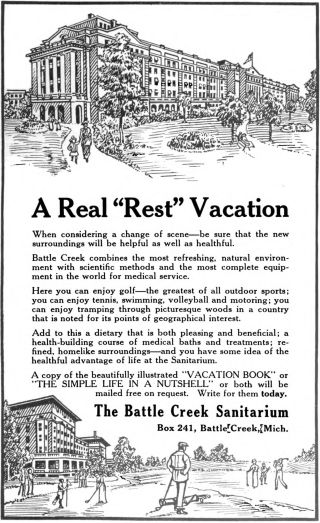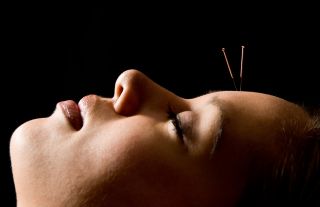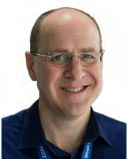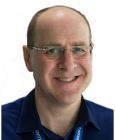Integrative Medicine
The Appeal of Alternative Medicine
Why are many people persuaded by alternative medicine?
Posted May 15, 2023 Reviewed by Lybi Ma

From 1876 to 1943, Dr. John Harvey Kellogg was the director of the Battle Creek Sanitarium, a grand hotel, spa, and wellness center. He is perhaps better known for his invention of cornflakes, together with his younger brother Will, who founded the Kellogg Company. John Harvey had some sensible ideas about healthy nutrition and exercise, but many outlandish ones, too.
Grounded in his Seventh-day Adventist beliefs about dietary and sexual restrictions, his approach followed the teachings of Ellen G. White and Sylvester Graham, who advocated a diet of bland foods to minimize excitement, sexual arousal, and masturbation, he promoted the benefits of a healthy diet, exercise, recreation, fresh air, and sunshine, and for both medical and religious reasons, he campaigned against the dangers of alcohol and tobacco. He also suggested that caffeine usage could lead to moral deficiencies.
Joe Schwarcz, Director of McGill University's Office for Science and Society described Kellogg’s approach to wellness:
In the late 1800s, the Battle Creek Sanitarium was unquestionably the place to be for people who needed to be cured of diseases they never had. Kellogg and his staff catered to the rich hypochondriacs who were usually diagnosed to be suffering from “autointoxication.” Dr. Kellogg was convinced that virtually all illnesses originated in the bowels and that the “putrefaction changes which recur in the undigested residues of flesh foods” were to be blamed for disease. To cure autointoxication, the bowels had to be cleansed. For this Kellogg had at his disposal a variety of enema machines designed to flush the colon with impressive amounts of water in just a few seconds.1, 2
Alternative medicine
Wikipedia defines alternative medicine as "any practice that aims to achieve the healing effects of medicine despite lacking biological plausibility, testability, repeatability, or evidence from clinical trials."3
Examples of alternative therapies include:
- Acupuncture
- Aromatherapy
- Chiropractic
- Colon cleansing
- Craniosacral therapy
- Cupping therapy
- Detoxification
- Dietary supplements
- Homeopathy
- Naturopathy
- Neuro-linguistic programming
- Orthomolecular medicine
- Osteopathic manipulation
- Quantum healing
- Reflexology
- Reiki
- Therapeutic touch

Typically relying on testimonials and anecdotes as evidence, most of these therapies lack any evidence of effectiveness beyond placebo effects,4 have been conclusively debunked, lack a scientific basis, or are based on pre-scientific folk notions of bodily function.5 Billions of dollars have been spent studying alternative medicine, with little to show in terms of scientifically verifiable effects. It is certainly possible that some alternative therapies will be proven to be significantly more effective than placebos. In the cases when this has been found, they have eventually ceased to be alternatives and have become mainstream medicine. But the vast majority continue to be promoted only on the assumption that they do what they claim to do.
The alternative medicine industry is estimated to be worth more than $30 billion in the U.S. alone at the time of writing6—aided by lobbying, marketing, and lower levels of government regulation and scrutiny than pharmaceutical companies must contend with. Even in this scientific age, a large percentage of the population7 remains in thrall to alternative medicine’s claims—not usually for lack of intelligence: hope, desperation, and misinformation are frequent factors leading large numbers of rational, educated people to pursue these therapies, which provide an alluring illusion of control over the randomness, vulnerability, and often intractability of ill health.
Placebos
I probably have the lowest placebo-response rate in the teaching hospital where I work as one of a group of 50 psychiatrists. My lack of exuberant confidence about the antidepressants and other psychiatric medications I prescribe is apparent to my patients when we discuss the pros, cons, and realistic expectations before deciding whether to try a treatment. I make it clear that these medications have been extensively tested scientifically and found to be significantly more effective than placebo, but I explain that they are not nearly as effective as we wish them to be, and they have a host of potential side effects, and some risks. There is variability in response rates to these treatments: Some individuals respond quite marvelously; for others, the response is extremely disappointing; most obtain a partial response.
As for the placebo component of responses to these treatments, some physical and mental conditions are very responsive to such effects, with placebo responses typically in the range of 30-40 percent. Other conditions, very much less so.8
Placebo effects can be explained by physiological changes brought about by two types of psychological and neurobiological factors:
- Conscious mechanisms: via suggestion and expectation9
- Unconscious mechanisms, via classical or Pavlovian conditioning10
Simple reduction of anxiety may also play a role, as this has a physiological effect on the reduction of pain and other aspects of well-being.
Placebo effects may also be accounted for by bias,11 analysis errors, and regression to the mean.12 Furthermore, most conditions get better spontaneously, and this will frequently coincide with the administration of treatment, giving the mistaken impression that the treatment caused the remission or improvement.
Placebo effects tend to be less sustained than active treatments.
Using the placebo effect to justify quackery
Curiously, but perhaps unsurprisingly, some practitioners of alternative therapies have begun to embrace the placebo effect. For example, pro-acupuncture researchers prominently conceded that acupuncture is no better than a placebo but nevertheless still recommended it—essentially on the basis of its placebo effect.13
Yale neurologist Steven Novella, founder of the website Science-Based Medicine, reminds us that “any placebo effect worth having will also accompany a legitimate treatment that actually works. On close inspection, placebo effects are not a justification for substituting hocus-pocus for real medicine.”14, 15
The failure of science education and the risks of scientific illiteracy
The fact that such a huge proportion of the population—and not just uneducated people—can so easily be persuaded that alternative medicine is effective indicates that science education and teaching of critical thinking skills still have a very long way to go. It is crucial to help people to understand what is entailed in the scientific process of rigorously demonstrating that an observed effect is indeed an effect of treatment. Many have unfortunately not grasped even the most basic lesson in the scientific method—that correlation does not equal causation.16
Scientific illiteracy carries grave risks for public health, a lesson devastatingly driven home by the COVID-19 pandemic, with its hundreds of thousands of preventable deaths17 among people who were ill-equipped to evaluate the risk-benefit ratio of vaccines, ignored basic public health precautions, and fatally over-estimated their understanding of complex medical topics.
A role for alternative medicine?
Modern medicine has many shortcomings and failures.18 Doctors frequently fail to spend enough time with, listen to, or empathize with their patients. This is something that alternative medicine practitioners tend to do well. Realistically, most doctors are simply too inundated to be able to do this as thoroughly as they should.19 Alternative medicine practitioners can play a useful and legitimate role in providing attentive, empathic care to patients. But they need to be honest about what it is they are actually providing and about the limitations of placebos—as intriguing as these may be.20
Problems in medicine do not mean that homeopathic sugar pills work; just because there are problems with aircraft design, that doesn't mean that magic carpets really fly.
― Ben Goldacre21
References
1. Joe Schwarcz, Quack Quack: The Threat of Pseudoscience (Toronto: ECW Press, 2022), p. 26. McGill University's Office for Science and Society is tasked with separating sense from nonsense.
2. Kellogg's cure for masturbation addicts was a lot more wretched: writing that “the physician rarely meets more forlorn objects than the victims of prolonged self-abuse,” he warned that the “vile practice” of masturbation led to such disorders as indigestion, throat conditions, hysteria (in females), heart disease, consumption (tuberculosis), diseases of the nervous system, epilepsy, and insanity. He provided anecdotal “proof” for these claims. To cure masturbation, he advocated circumcising males and applying carbolic acid to the clitorises of females—in both cases without anesthetic, to make the lesson more memorable. [John Harvey Kellogg, "Treatment for Self-Abuse and Its Effects" and “Results of Secret Vice” in Plain Facts for Old and Young (Burlington, IA: Segner & Condit, 1881); "How The 'Battling' Kellogg Brothers Revolutionized American Breakfast," Interview on NPR's Fresh Air, August 8, 2017 https://www.npr.org/transcripts/542145177]
3. https://en.wikipedia.org/wiki/Alternative_medicine. It is also referred to as complementary and alternative medicine (CAM), integrative medicine (IM) or holistic medicine when attempting to combine alternative practices with those of mainstream medicine.
4. A placebo is a substance or treatment designed to have no therapeutic value; placebos are any treatment that has no active properties, such as a sugar pill; they are typically employed in research studies to determine the effects of an active treatment in comparison to a placebo.
5. Some, such as chiropractic and naturopathy, consist of a few scientifically plausible treatments mixed in among the non-scientific therapies that are foundational to these practices. For example, some chiropractors, referred to as "mixers," incorporate mainstream medical diagnostics and employ conventional treatments including techniques of physical therapy, mixed in with varying degrees of emphasis on the pseudoscientific core beliefs and treatments that are central to chiropractic.
6. E.g., https://www.statista.com/statistics/203972/alternative-medicine-revenue-growth/, https://www.ibisworld.com/industry-statistics/market-size/alternative-healthcare-providers-united-states/
7. Barnes PM, Bloom B, Nahin R. "CDC National Health Statistics Report #12". Complementary and Alternative Medicine Use Among Adults and Children: United States, 2007. December 10, 2008. https://www.nih.gov/news-events/news-releases/according-new-government-survey-38-percent-adults-12-percent-children-use-complementary-alternative-medicine; Kemppainen LM, Kemppainen TT, Reippainen JA, Salmenniemi ST, Vuolanto PH. Use of complementary and alternative medicine in Europe: Health-related and sociodemographic determinants. Scandinavian Journal of Public Health. 2018;46(4):448-455. doi:10.1177/1403494817733869
8. Most responsive are those conditions that involve stress-related symptoms, pain, and subjective perception of symptoms. Much less responsive are disease processes such as cancer.
9. To understand the expectancy mechanism that underlies placebo effects, we need to appreciate that the brain is a prediction machine. For the brain to efficiently process the flood of incoming perceptual information, it makes predictions about what those perceptions are telling it, without fully processing all the information. Expectations and prior beliefs or assumptions play a crucial role in shaping the brain’s predictions. Most of the time the brain makes accurate guesses, but the cost of such an efficient system jumping to conclusions based on partial information is that it is sometimes wrong. It’s worth noting here that mistaken perceptions from expectations are also the basis for optical illusions.
Contemporary research and a current understanding of brain circuitry has revealed that a wide range of symptoms can be alleviated (or produced) by expectations causing biologically-based changes in the function rather than the structure of the brain and brain-body connections—in a sense, these mechanisms can be understood as acting via the brain’s “software” rather than “hardware.”
The opposite of the placebo effect is called the nocebo effect: worsening of symptoms, or new symptoms produced, from negative expectations.
10. Classical conditioning is a fundamental form of learning and is itself a form of expectation—as in Pavlov’s dogs salivating when they hear a bell rung that they have learned to associate with being fed. The brain’s reward and reinforcement circuitry (mediated by dopamine) plays a central role here.
Additional neurobiological factors, particularly in the case of pain relief, may include activation of endogenous opioids and the endocannabinoid system. Conditioning has even been found to have effects on the endocrine and immune systems.
11. Patients may be biased to report improvement of symptoms to please the physician / researcher, even if they are not truly experiencing reduced symptoms. Physicians and researchers, in turn, may be biased by their motivation to see improvement from the treatment they are prescribing or testing.
12. Regression to the mean is a statistical phenomenon that can make natural variation in repeated data look like real change. It happens when unusually large or small measurements tend to be followed by measurements that are closer to the mean (Adrian G Barnett, Jolieke C van der Pols, Annette J Dobson, Regression to the mean: what it is and how to deal with it, International Journal of Epidemiology, Volume 34, Issue 1, February 2005, Pages 215–220, https://doi.org/10.1093/ije/dyh299).
13. Steven Novella, "Acupuncture Pseudoscience in the New England Journal of Medicine," Science-Based Medicine (blog), August 4, 2010 https://sciencebasedmedicine.org/nc/, and Paul Ingraham, “Placebo Power Hype - The placebo effect is fascinating, but its ‘power’ isn’t all it’s cracked up to be,” PainScience (blog), Oct 2022 https://www.painscience.com/articles/placebo-power-hype.php [Novella and Ingraham were referring in particular to and criticizing this paper: Berman, B. M., Langevin, H. M., Witt, C. M., & Dubner, R. (2010). Acupuncture for chronic low back pain. The New England journal of medicine, 363(5), 454–461. https://doi.org/10.1056/NEJMct0806114]
14. Steven Novella, “The Poor, Misunderstood Placebo,” Skeptical Inquirer, November/ December 2010
15. Some other leading experts on placebo effects, such as Dr. Fabrizio Benedetti, put it even more bluntly: “Sometimes many quacks take the placebo effect as a justification for their bizarre treatments.” [Brain Science podcast With Ginger Campbell, M.D. Episode 127, March 1, 2016, Interview with Dr. Fabrizio Benedetti, Author of Placebo Effects and The Patient’s Brain https://brainsciencepodcast.com/more-new-products/pdf127.]
16. Further perpetuating the problem is the confusion generated by mainstream institutions and media sites, in their polite attempts to portray all alternative medicine as legitimate and benign, and in their tendency to understate as merely “inconclusive” the evidence for the more overtly implausible claims of some forms of alternative medicine. For just a few of the many examples of the kinds of polite understatements posted on mainstream health information websites regarding the effectiveness of alternative medicine, consider the following:
https://www.nccih.nih.gov/health/homeopathy. While mostly explaining that homeopathy lacks evidence for effectiveness, the NCCIH website states: “Homeopathy uses a different diagnostic system for assigning treatments to individuals and recognizes clinical patterns of signs and symptoms that are different from those of conventional medicine.” And “However, recent research has begun to examine physical attributes of these preparations to determine if it will be possible to characterize them in the future.”
https://www.cancer.gov/about-cancer/treatment/cam includes this whopping understatement: “There's not enough evidence to support the existence of energy fields.”
17. https://www.npr.org/2022/05/16/1099290062/how-many-of-americas-one-million-covid-deaths-were-preventable. Alternative health practitioners all-too-frequently promoted anti-vaccine positions and other misinformation during the pandemic.
18. As has the pharmaceutical industry, which is why it is so tightly regulated—unlike alternative medicine. Both modern medicine and modern pharmaceuticals have delivered a tremendous number of spectacular successes, and continue to do so, at an accelerating pace. Alternative medicine, on the other hand, has barely progressed at all. The key ingredient differentiating the two is the scientific method.
19. One of the rewarding things about being a psychiatrist, even in a very hectically busy hospital clinic like the one where I work, is that my time is necessarily structured in such a way as to spend longer sessions talking with patients than my colleagues in other medical specialties and family practice are able to do.
20. Alternative medicine practitioners also need to distance themselves from the many purveyors of misinformation and disinformation—especially the anti-vaxxers and those who would discourage patients from receiving life-saving conventional treatments such as chemotherapy for treatable cancer. See for example, https://www.npr.org/sections/health-shots/2021/05/12/993615185/for-some-anti-vaccine-advocates-misinformation-is-part-of-a-business, https://www.nytimes.com/2021/07/24/technology/joseph-mercola-coronavirus-misinformation-online.html, https://www.fredhutch.org/en/news/center-news/2016/05/patients-spurn-chemo-natural-remedies.html
21. Ben Goldacre, Bad Pharma: How Drug Companies Mislead Doctors and Harm Patients (New York: Farrar, Straus and Giroux, 2013). https://www.goodreads.com/quotes/7769854-problems-in-medicine-do-not-mean-that-homeopathic-sugar-pills




